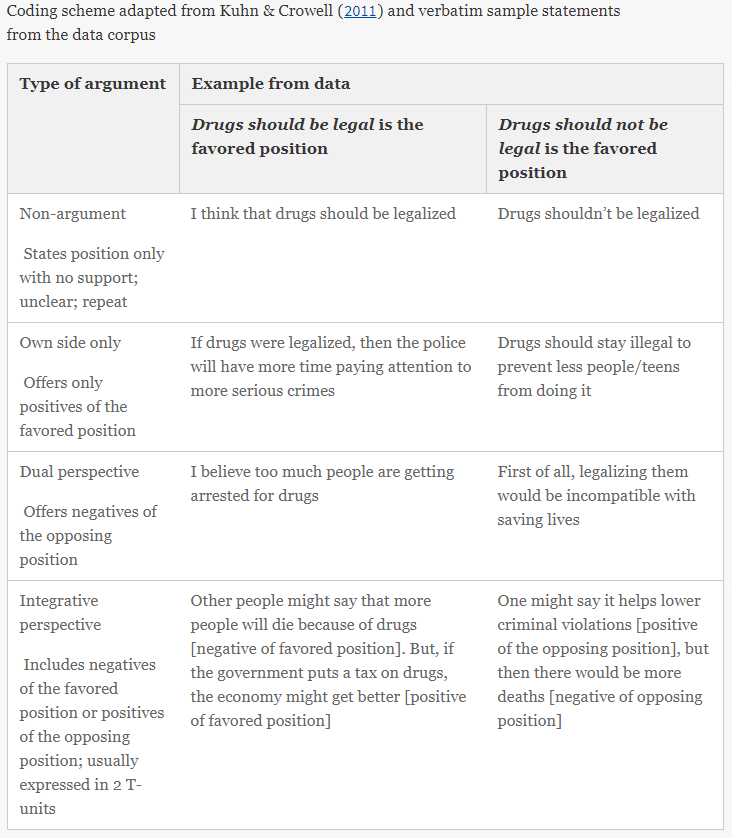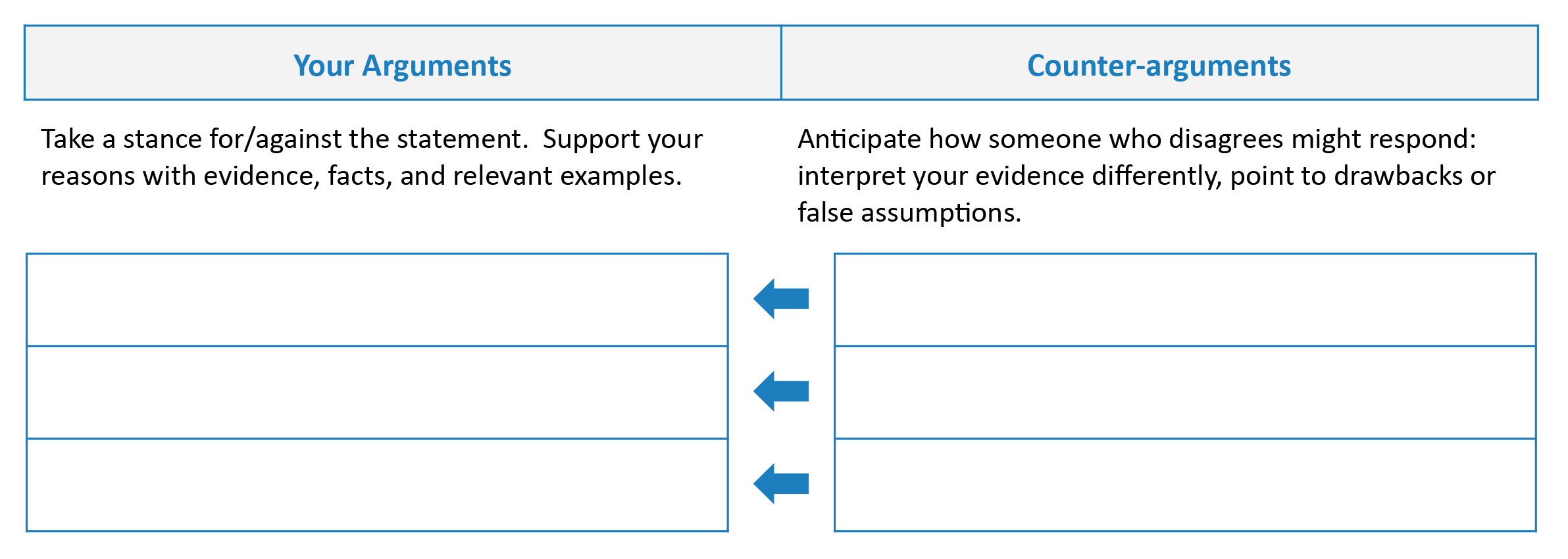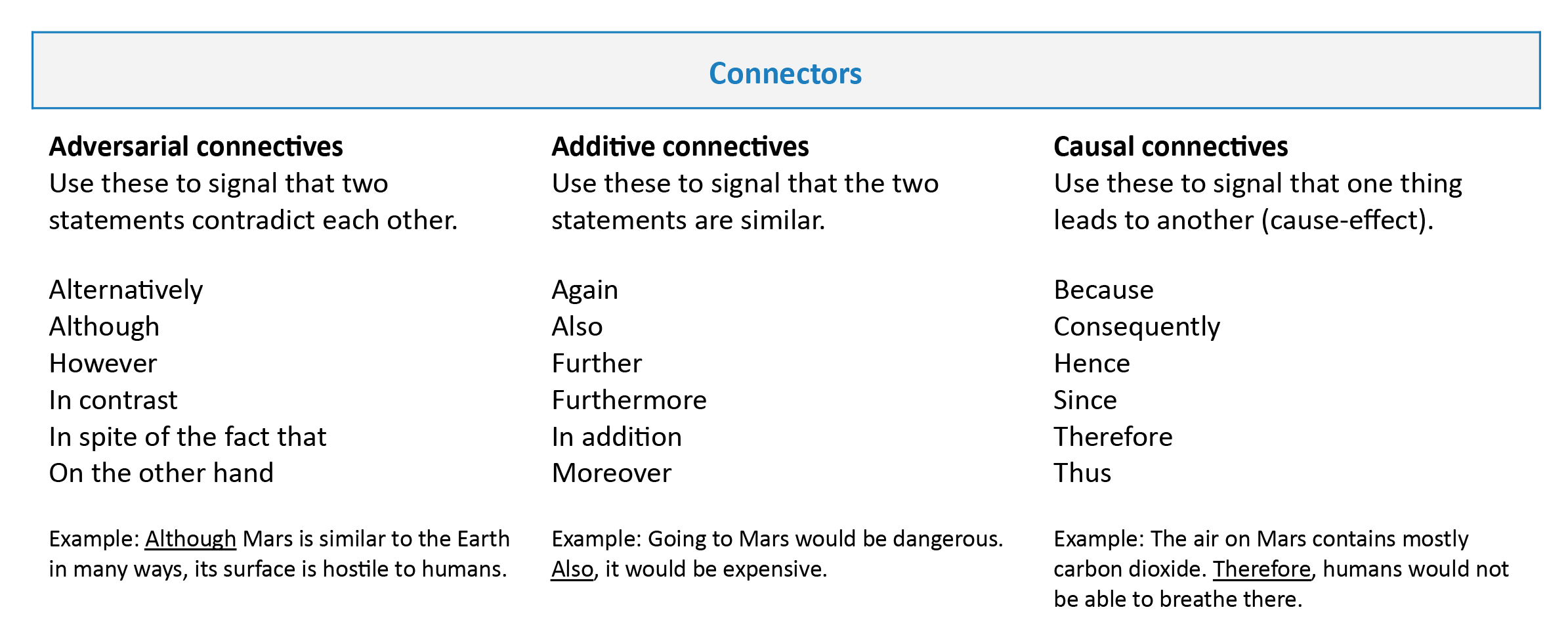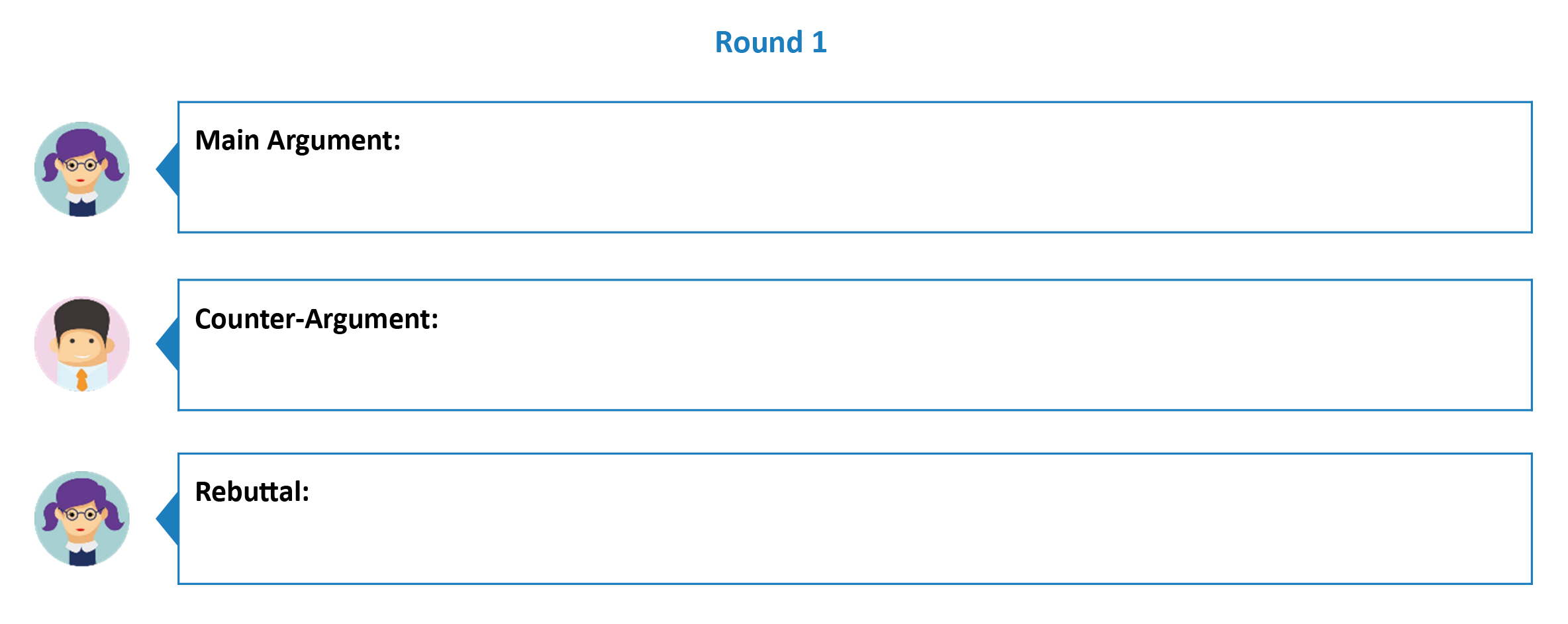Argumentative Writing is Hard
Creating and responding to cogent arguments requires that students take a position and that they understand the limitations of their own perspective. An accumulation of research on this topic has demonstrated that it is difficult for secondary students to consider multiple perspectives simultaneously while navigating complex topics in classroom debate or while producing argumentative writing. Recently, Karen Taylor (lead author, UC Irvine), Carol Connor (UC Irvine), Catherine Snow (Harvard University), and Reading Ways founder Josh Lawrence have published a paper that examines the cognitive and linguistic features of adolescent argumentative writing. We analyzed the persuasive writing essays of 40 middle school students who were participating in the Word Generation program, which supports student academic language through classroom discussion and debate. In each sample, students needed to take a position on a social issue, such as the use of nuclear power or whether the death penalty is justifiable. Each clause in these essays was coded as presenting one of four categories of argumentation, listed below:

Connectives: An Important Class of Academic Word
Karen also tallied the number of connectives used in the essays. Connectives are a kind of general academic word that helps to connect ideas. For instance, adversative connectives signal that two statements contradict each other (alternatively, although). Additive connectives are used to signal that two statements are similar (again, further). Causal connectives signal that one thing leads to another (hence, since). In a series of multiple regression analyses, we found a connection between students' use of these words and the level of their argumentation. These results suggest that if we want students to do advanced argumentative thinking, they need specialized words to do so.
Graphic Organizer For Argumentative Writing
Reading Ways has created two graphic organizers that provide both conceptual and linguistic support for students' argumentative writing (in collaboration with the Understanding Teachers as Designers project at the University of Oslo). In the first section of this organizer, students develop their own arguments and consider counter-arguments. In the next section, they consider opposing arguments and prepare rebuttals.

On the second page, students respond in writing. They’re given a list of adversative connectives, additive connectives, and causal connectives at the top of the page so that they might more easily access them for use in their argumentative writing.

Rebuttal Battle: Putting the Critical in Critical Thinking
A second organizer is focused on preparing students for a classroom debate. It helps them consider their side of the issue, the opposing side of the issue, and rebuttals that each side might make. Icons help students keep track of positions, arguments, and rebuttals.

How to Download these Strategies
One of our core interests is understanding teachers as designers. We know that most teachers will want to adapt these organizers to fit their particular needs, so we made them available in different formats. You can find them, and many others, are available for free in our Hub Demo.
To access it:
- Sign up for the Hub Demo: https://hub.readingways.org/
- Once your registration is confirmed, simply search for "Argumentation Sheet" or "Rebuttal Battle" using the search bar at the top.
- On the strategy page, you can download it in Google Docs, Microsoft Word, or PDF formats.
While you're there, check out the Reading Ways Resource Library to discover more classroom-ready strategies and tools to support teaching.
You can also learn more about these strategies and how to use them in the classroom by watching the videos below.
For more information, see Taylor, K. S., Lawrence, J. F., Connor, C. M., & Snow, C. E. (2018). Cognitive and linguistic features of adolescent argumentative writing: Do connectives signal more complex reasoning? Reading and Writing. https://doi.org/10.1007/s11145-018-9898-6
Special thanks to Jenny Michelle Hughes Thorbjørnsen at the Understanding Teachers as Designers project at the University of Oslo; Deanna Kuhn at Teachers College for her scholarship on argumentation; my collaborators Karen Taylor, Carol Connor, Catherine Snow; the Strategic Educational Research Partnership and the Institute of Education Sciences; the U.S. Department of Education, which supported this research through Grant R305A090555 (Catherine Snow, Principal Investigator) to the Strategic Education Research Partnership (SERP), and through Grant R305F100026, awarded to SERP as part of the Reading for Understanding Research Initiative.

